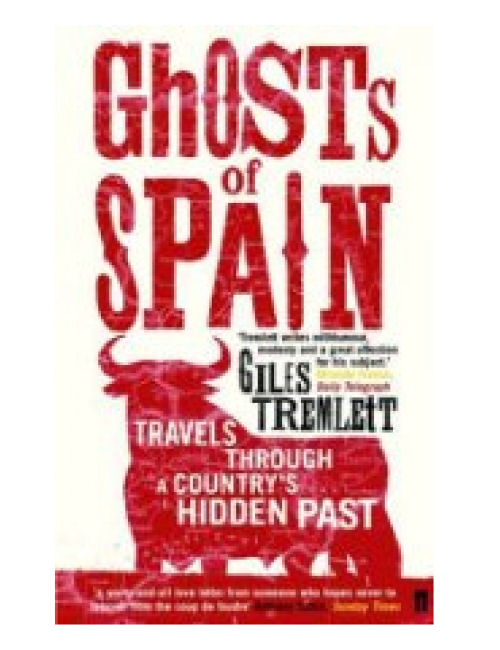The Ghosts of Spain is a somewhat personalised view of Spain. However the personalisation comes in this case not from the Author but from the people of Spain themselves. Giles Tremlett manages an empathetic view as to how this country is seen through the eyes of its populace.
 Tremlett is the Madrid correspondent for the Guardian and has lived there for around twenty five years. His knowledge of the country is enviable and his ability to relate this in a readable form is to be admired. This book achieves the perfect balance of sufficient detail to inform but stops short of an educational tract. This should not be seen as a history of Spain but more as a view of the impact of this history on a nation. Ultimately he is a story teller and he has written a book which is easily digestible and leaves the reader to pursue further studies if they wish.
Tremlett is the Madrid correspondent for the Guardian and has lived there for around twenty five years. His knowledge of the country is enviable and his ability to relate this in a readable form is to be admired. This book achieves the perfect balance of sufficient detail to inform but stops short of an educational tract. This should not be seen as a history of Spain but more as a view of the impact of this history on a nation. Ultimately he is a story teller and he has written a book which is easily digestible and leaves the reader to pursue further studies if they wish.
In the early parts of the book Giles shows how the civil war which killed 500,000 people, more than the number of British deaths in WW2, is almost a hidden war. This tragedy still lies buried just below the surface and by some tacit understanding, it remains there. The author shows his journalistic frustrations at this silence but in the end he seems to understand the necessity of avoiding the opening of still fresh wounds to this now progressive nation. To me this code of silence is akin to that of an old married couple who have agreed to never mention the ‘Big Affair’. The country has managed to avoid pointless recriminations and is probably the reason for Spain’s ability to move forwards and its rapid transition to modern democracy.
The thrust of this book is to show how the history and politics of a country still impacts on its culture today. As a Brit, I understand instinctively how events like 1066, The World Wars, the IRA bombings or our royal family still impact on our day-to-day life but it is impossible to convey this succinctly to somebody from outside the U.K. In this, Giles does an admirable job and presents a hundred years of cultural influence quickly and in a readily understood way.
The more recent history of the Basque and Catalan problems is concise and seemingly well balanced but are presented to inform the lay reader and not intended as a deep political treatise.
His coverage of the recent scandals concerning the construction boom is incisive and accurate. He manages to show how the confusion and petty corruption led to much wider problems which ended, as we all know, in major corruption and the crash and stagnation of the building sector which is still crippling the country’s recovery.
I found the section on the Flamenco particularly eye-opening. It is not an art form I’ve ever found personally attractive so I guess I’ve only ever seen the usual simplistic versions. Giles brings us the darker side of this and shows it as a sort of street music, more akin to the gangster-rap of today than the pretty folk dancing with which it often associated. He exposes the ghettos that gave it life and the dark underbelly that is still tangled in poverty, gypsies and drug abuse. It’s a remarkable insight.
The book is highly readable, as one would expect from a journalist, yet it still manages to cover its subjects in surprising depth. However, there is one notable exception and that is The Corrida. The bullfight is still a huge part of the Spanish culture and psyche that it seems odd he passes it by with just a few brief mentions. Whilst I personally find it horrendous and cruel I do recognise its importance to huge parts of Spain. It seems odd that Giles feels comfortable to poke at the open sores of the civil war yet avoid this subject with such deftness. Perhaps either he, or his publishers, saw it as too divisive and potentially damaging to sales?
Giles shows us Spain as a wonderful dichotomy. On the one hand it is still emerging from the dark, secretive and oppressive fascism of Franco, yet on the other hand it is one of the most progressive nations in the world. The strong Catholicism contrasts with the openness and willingness to accept different lifestyle choices. It is the first country in the world to allow gay police officers to cohabit and its attitudes to prostitution, naturism, and other alternative lifestyles are truly inspiring.
For people looking for a good introduction to Spain that runs much deeper than the usual guidebooks this is essential reading. It is a very good and concise exploration of modern Spain and how it became the country it is today.